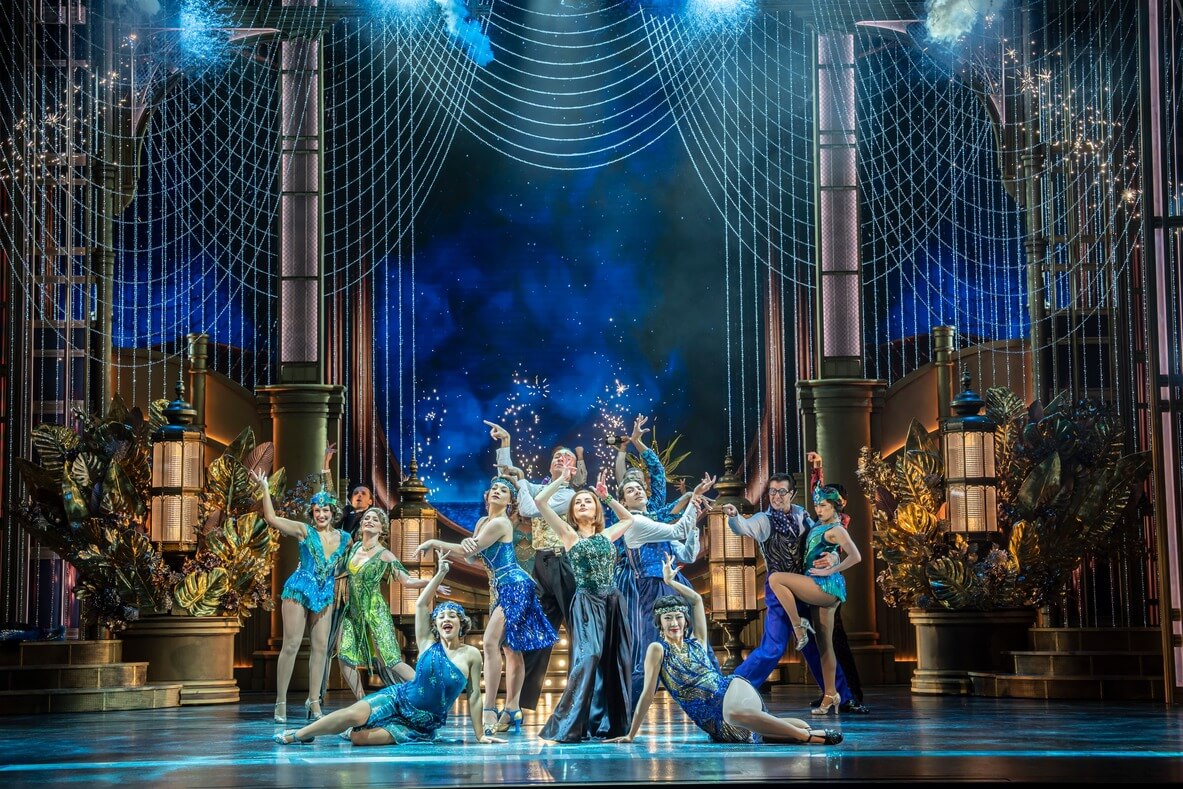Terms like “Thought Police” and “Double Speak”, now commonly used to describe propaganda, originated there too as well as the concept of a “Room 101” where you’re tortured by exposure to your worst fear.
It’s well worth catching whether you’re a fan of the book or new to it.
In 1948 Orwell was telling, what was for him, a futuristic tale of an everyman figure, Winston Smith, who enters into a forbidden love affair. This becomes the catalyst for further small rebellions and prompts him to question a system that allows for no dissent. Robert Icke and Duncan Macmillan’s highly acclaimed stage version, originally seem at the Almeida, returns for a second season at the Playhouse Theatre in the West End.
Their production begins with a shabby group discussing the meaning of the text in a fusty looking library. The stage picture alternates between Smith alone or surrounded by the gathering whose conversation becomes increasingly fragmented until the room and its inhabitants morph into characters and locations in the book. It's a bleak and chilling existence in which everyone is a potential informer. No one can be trusted amongst an ant-like workforce subjected to constant brainwashing via screens and loud speaker announcements. Radical at the time this setting has become the blueprint for virtually all science fiction since and can be interpreted as an allegory of any oppressive political system or ideology.
Central to Smith’s dissent is his renting of a secret room, accessed through a door stage-left, where he can meet his girlfriend unwatched. Ironically for a work about the intrusion of surveillance, events in this off-stage space are filmed for us and projected on to a big screen above the stage so we can watch. In the second half the civilised library and this secret oasis are stripped away to be replaced by a colder, clinical environment in which Smith finds himself in direct confrontation with those who seek to control him.
This transition and the clever use of projected imagery beautifully evokes an atmosphere of shifting uncertainty and Matthew Spencer is excellent as a suitably uncharismatic hero who represents the capacity for rebellion in all of us.
More disturbingly 1984 also demonstrates how such rebellion could be quickly tortured out of us should we ever let a tyranny oppress society for the benefit of the elite. It runs at an engaging ninety minutes and I’ve seldom encountered an audience so silent and gripped; a testimony to the power of Orwell’s vision which still feels like an urgent warning about where our own world could be heading.
It’s well worth catching whether you’re a fan of the book or new to it.

 Long before it was the title of a voyeuristic TV game show the term “Big Brother” was coined by the novelist George Orwell. It comes from his influential book 1984 where it’s the name of the oppressive regime controlling, punishing and rewarding a mass population through dictating and monitoring its every move.
Long before it was the title of a voyeuristic TV game show the term “Big Brother” was coined by the novelist George Orwell. It comes from his influential book 1984 where it’s the name of the oppressive regime controlling, punishing and rewarding a mass population through dictating and monitoring its every move.


 It feels great to have a new gay play around the West End. It also feels slightly odd as there’s been very few for the last decade or so. Recently directors wanting to explore the gay experience have had to dredge up old AIDS plays, now painfully out of date and only good for an impotent wallow in ancient miseries.
It feels great to have a new gay play around the West End. It also feels slightly odd as there’s been very few for the last decade or so. Recently directors wanting to explore the gay experience have had to dredge up old AIDS plays, now painfully out of date and only good for an impotent wallow in ancient miseries.